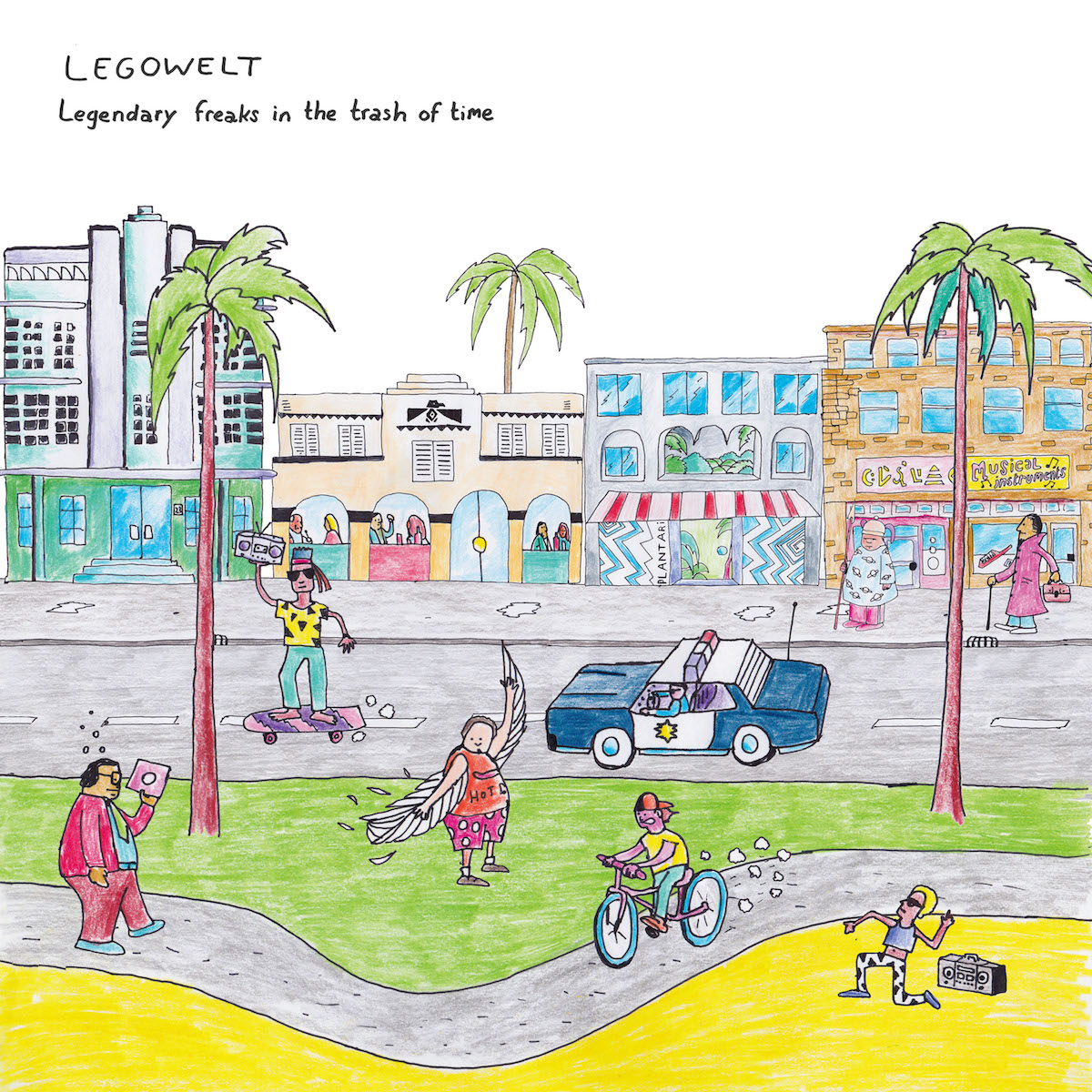Legowelt Legendary Freaks In The Trash Of Time
On his first Clone outing in years, the prolific Danny Wolfers welds ironworks-tough rhythms to spiraling synths.

The Hague’s Danny Wolfers is a polymath wizard, one who seems to have a boundless supply of energy and an ingrained need to create. He’s published zines, he’s made Ableton plug-ins, he crafts graphic novels, he reviews vintage gear, he runs the Nightwind Records label…we must be forgetting something. Oh, that’s right—he’s also an exceedingly prolific, extremely talented producer of electronic music, a skill he’s been perfecting since got his first Amiga computer and a free copy of his trusty OctaMED software as a kid. Over the years, he’s worked under a ridiculously large array of names (the Psychic Stewardess, Dickie Smabers & the Moerwijk Crew, and Calimex Mental Implant Corp. are a few of the odder ones) for a score of labels. But he’s most known for his work as Legowelt, and he returns to that moniker for his latest album, Legendary Freaks In The Trash Of Time, a release that sees him back on the Clone label for the first time since 2012’s The Paranormal Soul.
The hardware-loving artist’s music is generally defined by handmade, slightly lo-fi aesthetic, along with a vaguely hallucinatory vibe—but beyond that, Wolfers’ always been a hard artist to pin down. Just in recent years, he’s tackled moody ambience (under his Saab Knutson alias), dramatic gaming soundtracks (2013’s Just A Clown On Crack) and earlier this year, something he’s described as a “lo-fi minimal-wavish version of cosmic space jazz” on Unfolding The Future With Amateur Space Jazz.
But, as Legowelt, he’s demonstrated a knack for welding ironworks-tough rhythms and sawtooth-laced low end to spiraling, celestial synths in a way that feels natural and seductive. Tracks don’t really build in the traditional sense; instead, they tend to unfurl and expand, both in terms of arrangements and of sound design. It’s visceral music, with roots in the kind of acid, house, and techno that first found an audience at early-’90s warehouse parties in both the American Midwest and in the north of Europe.
That aesthetic is plain to hear on a track like “My Life in a Bush of Spaceweed” (the man has a way with nomenclature): aqueous gurgles and trilling chirps weave through a circular synth pattern and steady kick, with an ebb and flow of intensity that’s nearly subliminal yet hugely effective. On “It’s Midnite & You Are Lost,” heaving synths are punctuated by a tweaked 303, as the orchestral strings hovering in the background add an elegant uplift to what otherwise would be an unadulterated jack track.
Speaking of jack tracks, ‘Trips In Polarius” is just that—a driving Detroit-esque chugger, defined by tough syncopated chords and rumbling bass, that’s pure momentum. Another of the album’s Motor City–tinged tracks, “New Stories,” sees Wolfers lacing serpentine trills around droning organ chords, while the fluttering keys that hover above the syncopated kick of “Legendary Freaks” ingrain the song with an exultant aura.
Elsewhere, Wolfers tinkers with the tempo and mood. “Axumisia V S612”—defined by a plodding 4/4 rhythm, addictive four-note bassline, and suppressed melodicism nearly buried in echo—sees Wolfers honing in on spectral version of synthpop; “Revenge of the Nerds” feels like the basis for a gothic slow-march hip-hop cut, its ominous, buzzing synths giving it the feel of something lifted from an ’80s horror flick. The album’s fitting denouement comes with the introspective “La Guerre Aux Reves,” a song that layers lullaby chords over a cavernous and crunchy bassline. It’s that contrast—a tough core enveloped by uplifting ornamentation, forcefulness laced by grandeur—that serves as the real strength for many of these tracks.
Despite its many charms, despite its moments of beauty and dynamism, Legendary Freaks In The Trash Of Time is probably not an essential Legowelt album. It’s more straightforward than much of his work, lacking the inherent weirdness and shaggy appeal of Unfolding the Future With Amateur Space Jazz or the otherworldly beauty 2015’s Swan Song Of The Skunkape. Still, despite the man’s frenzied level of output, his attention to quality control is as strong as ever—and really, even a lesser Wolfers record has more personality and charm that most producers could hope to match.

